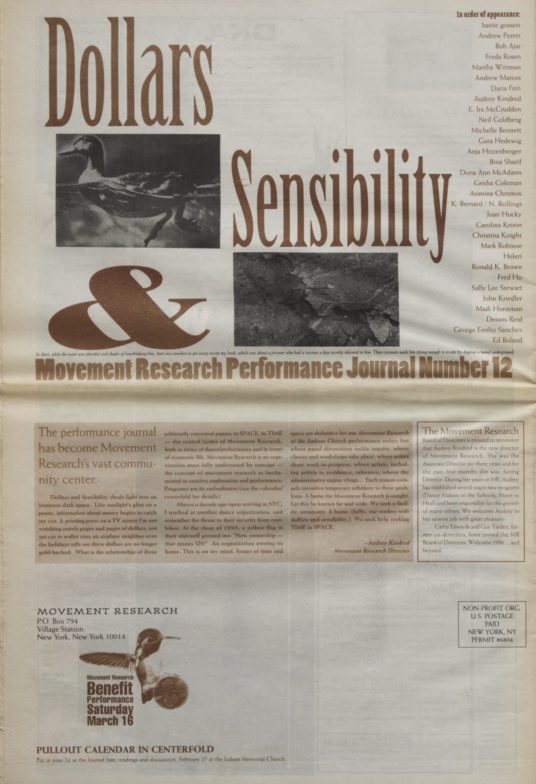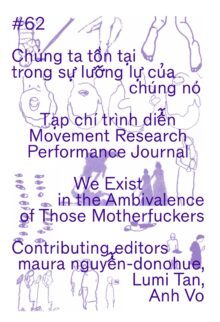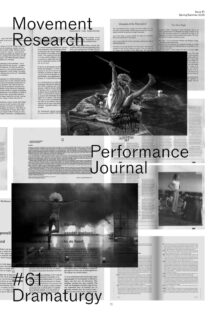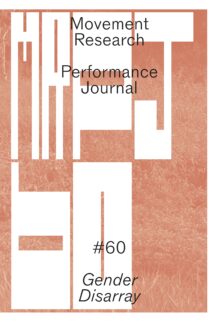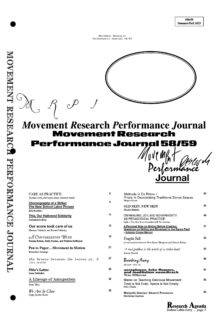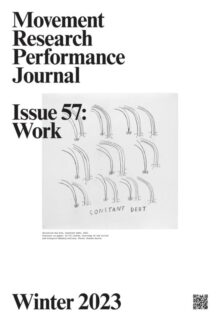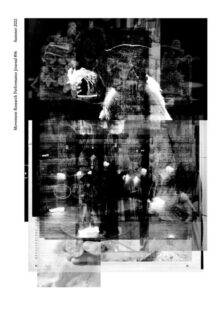This issue is OUT OF PRINT.
Redemption
It’s the nature of money to change hands. Look down the streets, every coupla feet, somebody’s pockets are ringing. Money is everywhere you look. Garbage is money. Ice is money. Fish is. Any thing that changes hands. Cement. Tar. Glass. Money is blood. Blood is oxygen. Oxygen is life. Without money, I have no synthetic thyroid. I have no lung capacity. Money is medicine! Money is breath—medicine, when you need it, money is life. Money is food. When you need it, money is life. Money for money for money is life. I told my grandmother I wanted to come see her. She said, “Make the money first. ” Today it’s no trading potatoes for knickers. Without money I am left wanting. Wanting is a word no longer used. Wanting is a word spoiled by a system that convinces you to want. It is not this wanting of which I speak. The wanting I am speaking of, is somatic; the way you feel love twirl in your gut, the rumbling, curling, hunger in the heart My heart rumbles and curls The blood does these things In my stomach you can hear — the wanting I speak of The way poverty is metabolized. The way debt, in time, it is returned to the heart. A penny isn’t even copper any more. If you take a flame to penny, it just evaporates, it doesn’t even melt anymore. You know, just poof. The way copper is not in a penny, the way I am not in my body, the way I am not in the economy. The economy is a game but not everybody sees the white lines that define the court. If you walk up to a tennis court, you see the white lines, you see the net. You learn the rules. You play. But you need a racquet. Same with the economy. You need to know the court. Breathe in. Breathe out. Money is the ball. I need an income. I need a racquet, an economic root. It’s all about money changing hands. It’s the nature of money to change hands. Heart move blood. Commerce intercourse currency blood. The things we exchange. Heart muscle tightens, blood is forced through long and narrow turnstiles, one at a time, hello little corpuscle. The weird thing is how transactions replace interactions. The same time people stopped listening to one another is the same time blood started being so private. Sony Walkmans and A.I.D.S both “came out” in 1981—We both bought and paid for isolation. One dollar, one dollar, one dollar, in Chinatown a man chants, carrying a rack of rainbow cotton candy on his shoulders. What kind of language do you use to ask for money? Whom do you ask? The yell of money. The demand. My father spinning coins across the counter-top. Sorting his madness into containers of screws, scrap metal, washers, a dishful of money and time. This is my dowry. Money from countries that no longer exist. Japanese pesos issued as war souvenirs. Money, but I’m not in the right time and place to use it. “Maybe these will be worth something someday,” he grins. Money is always everywhere. Constantly. Omnisciently. Forever. Endless. All you gotta do is stick your butterfly net up. Money, is like flying around. All you gotta do is see it. Translate it. Know it. See the white lines. See who gets handed the check. Rip the foodstamps along their perforated edge. Wear a tuxedo while you do. Anything that changes hands—that’s why money has god’s name on it! That’s why money has god’s name on it!
–Annie Rachelle Lanzillotto, guest editor, Avenue A, 1996
Back in October, Annie and I talked about how to approach writers and artists for submissions to Dollars and Sensibility. What questions should we ask? What answers were we looking for? I remember saying “We can’t just put a gun to people’s heads and expect them to talk truthfully about money.” In the process of editing this journal, I’ve learned that no matter how you approach it, talking about money makes people feel like they have a gun to their head.
Money is loaded with anger, pride, shame, and fear. In response, people talk differently. Some fast talk, some sweet talk, some back talk, some freeze. This journal is the product of the voices that kept talking, under pressure. We received an overwhelming number of responses. Each played a role in nudging and shaping the journal towards its eventual form. And though we were not able to include every submission, we hope they have stirred debate that will continue beyond these pages.
Over the last few weeks I have walked around with sentences and ideas from the journal circling through my mind. The voices I hear most insistently are the expressions of anger and of hope. But between the lines, and in conversations with writers, I hear underlying despair, frustration, and fear It’s important not to turn away from these voices. They are a very real response to the economic condition of this country, a cultural obsession with income, and the devaluation of art. For me, the articles in this journal play off one another, complement each other, and help create a more honest and human profile for this fetish and lifeblood. Money.
–Alice Naude, Associate Guest Editor January 1996
